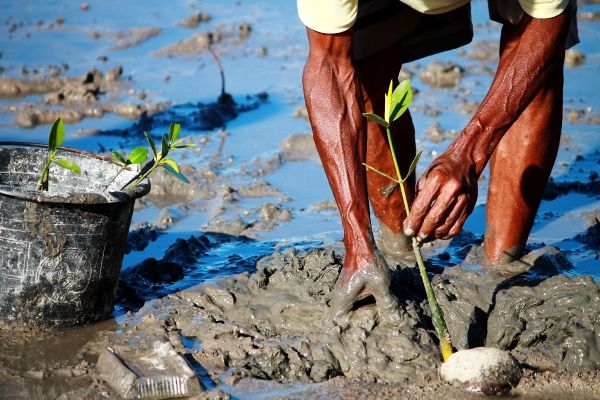Global meta-analysis supports the U.N. goal of restoring habitats
Funding to restore mangrove forests is money well spent, according to a new meta-analysis by ecological economists at the University of Tokyo. For every dollar spent to restore mangroves, the ecosystem will yield $6.83 to $10.50 in returns over the next 20 years. The range reflects different economic projections of how much immediate costs are worth compared to future benefits and reflects the significant ecological benefits that degraded habitats receive from mangrove restoration. The findings were recently published in Nature Communications.
Ecosystem restoration has become a significant feature of global policy agendas. The current United Nations Decade on Ecosystem Restoration (2021-2030) prioritizes conservation and restoration of wetland ecosystems, such as mangroves. The ongoing deliberations of the U.N. Convention on Biological Diversity Post-2020 Framework have defined five conservation goals for 2050, one of which is restoration of at least 20% of ecosystems, including freshwater and marine habitats.
“The most important point is that now, in the face of the post-2020 framework and the U.N. Decade on Ecosystem Restoration, we can see that yes, there are real ecological benefits and economic value in restoring mangroves,” said Associate Professor Alexandros Gasparatos from the Institute for Future Initiatives at the University of Tokyo.
Continue reading at University of Tokyo
Image via University of Tokyo




